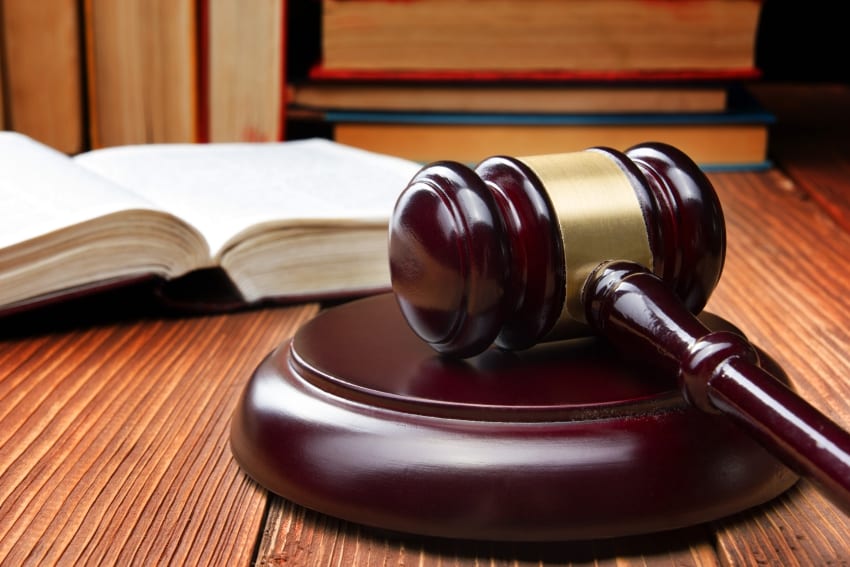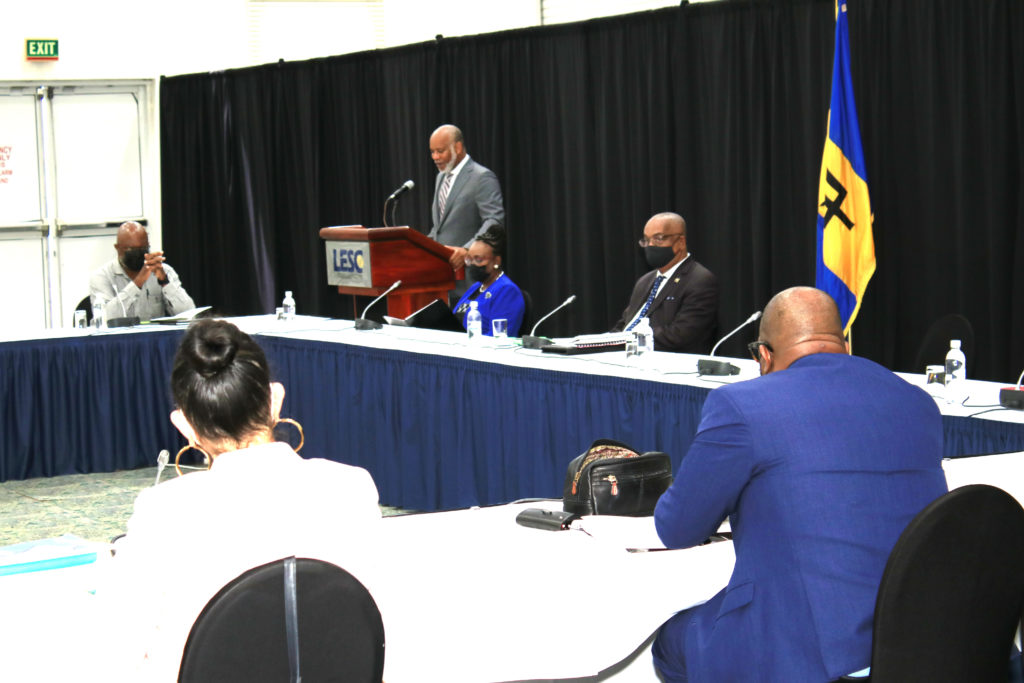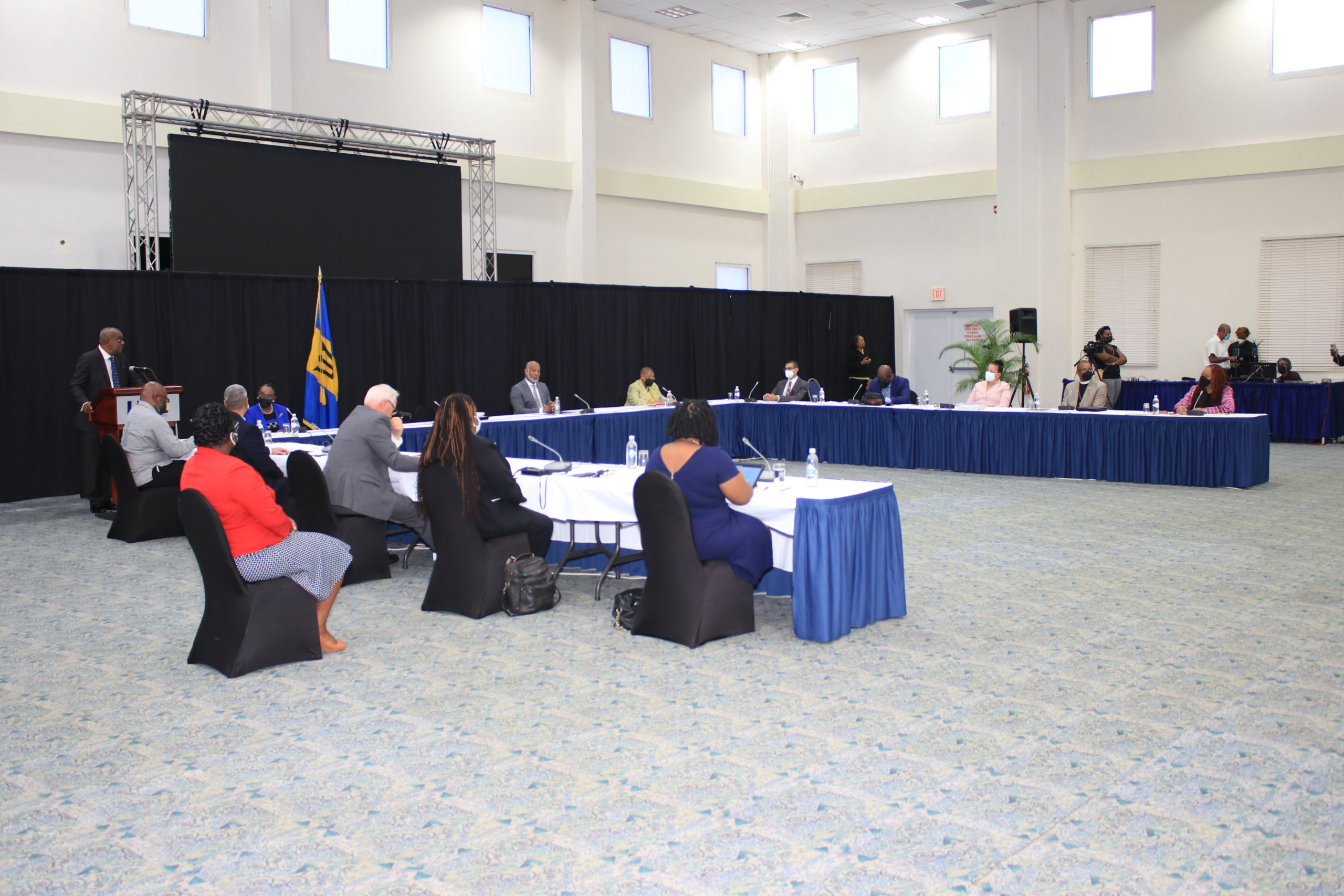BY SHARON AUSTIN | JUN 24, 2022 – BGIS
The Official Launch of the Constitutional Reform Commission today, at the Lloyd Erskine Sandiford Centre. ( Photo by David Crichlow — CARIBPIX IMAGES )
PICTURES FROM THE SWEARING IN OF THE COMMISSION CAN BE VIEWED AT THE BOTTOM OF THIS FEATURE …….BARBADOS:Constitutional Reform Commission Members Sworn-In – Caribpix.net PLEASE CLICK ON THIS LINK….
The Constitution reform process is a “lengthy and complex” one, and “not something to be hastened”, says Attorney General Dale Marshall.
Mr. Marshall emphasised this point as he addressed the Official Launch of the Constitutional Reform Commission today, at the Lloyd Erskine Sandiford Centre.
Those present included Chief Justice Sir Patterson Cheltenham, acting Prime Minister Santia Bradshaw, ministers and senior government officials, and friends and family members of the commissioners.
The Attorney General told his audience that in recent days, the Government had been criticised for taking too long to get on with the process of Constitution Reform.
“Let me remind those commentators that the course of constitutional reform, properly done, is not something to be hastened and raced along. It is a lengthy and complex, and costly process, and the consultative process that the Commission will take charge of is no small undertaking,” the Attorney General told his audience.
He noted that a previous Commission, chaired by the then Henry Forde, met 112 times in its life of 26 months.
The Attorney General continued: “We have been methodical in our work in getting this process off the ground, and in making sure that the best possible arrangements for this Commission are put in place. There simply can be no false steps.
“We have had to consider carefully such things as the manner in which the Commission will be operating; how will it be able to capture the interest of the Barbadian public; how will we carry out the process of educating the Barbadian public on the various issues that are to be considered, [and] how will we utilise the new platforms of communication in order to reach every possible Barbadian.”
“Let me remind those commentators that the course of constitutional reform, properly done, is not something to be hastened and raced along. It is a lengthy and complex, and costly process, and the consultative process that the Commission will take charge of is no small undertaking.”
Attorney General, Dale Marshall
Mr. Marshall expressed the view that the Commission would no doubt be invited by contributors to revisit ground already covered by the previous commissions chaired by Mencea Cox and Henry Forde.
“That is not a bad thing,” he stated, as he added that he expects engagement on all issues that gripped the imagination of constitutional theorists, political scientists and political practitioners.
He indicated that the Commission would not be starting with a blank slate since a draft document had been prepared some decades ago. However, he surmised that it had been overtaken by time, legal thinking and recent court decisions.
In addition, he said there were many constitutions across the world from which the Commission could extract those relevant things.
“I wish to underscore the point, Mr. Chairman, that everything is open for discussion. Yes, there are some elements such as the Bill of Rights that are an essential part of any constitution, but what those rights look like, whether they should be expanded, limited, or adjusted – all are open for discussion. There are to be no sacred cows in this process,” Mr. Marshall stressed.
He said Prime Minister Mia Amor Mottley was on record as saying that the deepest possible consultation across every community and sector here, on every element of the Constitution was required, and that would be done.

Conceding that what worked in 1970s or 1990s would hardly capture the interest of the millennial Bajan, he proffered the view that the voice of the millennial Barbadian would perhaps need to be most heard, since this would be their Constitution.
“Some of the new rights that are emerging for the Commission’s consideration will take on a special significance for the younger Barbadians: rights that are beginning to coalesce around such concepts as the right to digital security and the right to one’s own digital data, as well as the right of equality of access to digital and computing spaces.
“We must also find the means to fully engage the Barbadian diaspora in this process, whose interest in and commitment to Barbados has never flagged over the years and cannot be doubted,” he stated.

Mr. Marshall underscored the importance of this reform, saying a constitution is a living document, which must be strong enough to withstand the buffeting of the winds of change, while being adaptable, and adjustable when circumstances require.
Stressing that neither legal thinking nor societies had stood still over the years, the Attorney General said officials must ensure the Supreme Law took into account, where appropriate, the developments in the law and changing societal norms.
“Consider for example, the progression from the legality of capital punishment, which was mandatory, to the current position seen in the decisions of the CCJ in the case of Nervais, which ruled that the mandatory death penalty in Barbados was unconstitutional. Consider also the emerging trend in the approach of regional Courts in respect of LGBTQI rights and the constitutional protection of those rights,” Mr. Marshall said.
In the last 56 years, Parliament has amended the Barbados Constitution by way of direct and indirect amendments.




